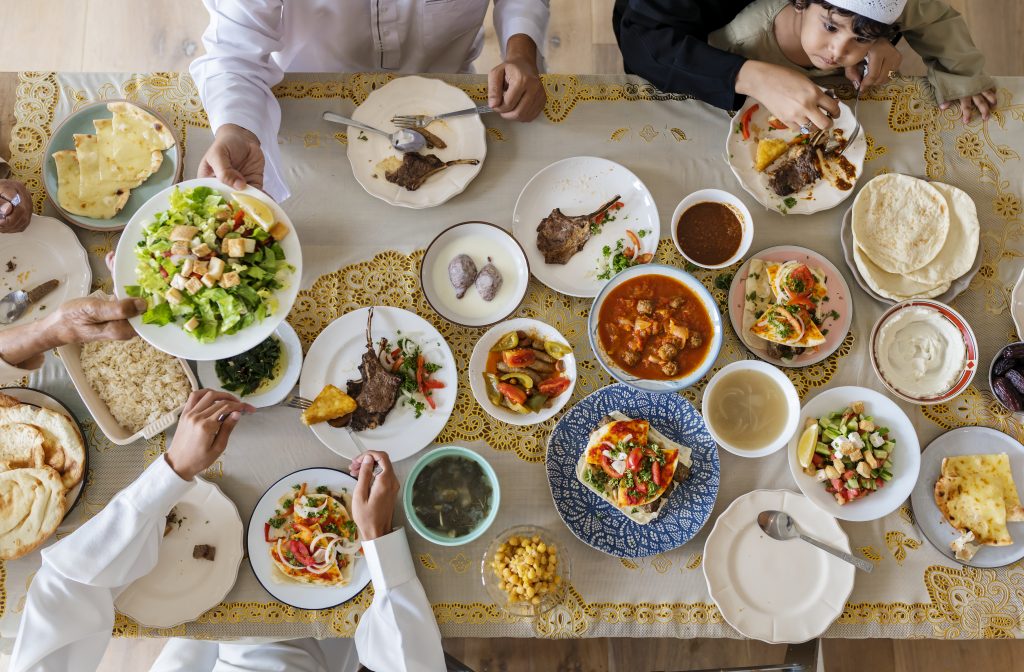 Halal food stands out as a beacon of purity and ethical consumption in a world where dietary choices abound. Rooted in Islamic tradition and guided by the Quran, the Halal way of eating offers a myriad of benefits that extend far beyond religious observance. In this article, we will delve into the compelling reasons why choosing Halal is not only spiritually enriching but also a healthier and more ethical choice for individuals and society as a whole.
Halal food stands out as a beacon of purity and ethical consumption in a world where dietary choices abound. Rooted in Islamic tradition and guided by the Quran, the Halal way of eating offers a myriad of benefits that extend far beyond religious observance. In this article, we will delve into the compelling reasons why choosing Halal is not only spiritually enriching but also a healthier and more ethical choice for individuals and society as a whole.
The Quranic Foundations of Halal Food:
Before we explore the numerous advantages of consuming Halal food, it’s essential to understand its roots in the Quran, the holy book of Islam. “Halal” means “permissible” in Arabic and is frequently mentioned in the Quran to guide Muslims on what they can consume.
“O mankind, eat from whatever is on earth [that is] lawful and good…” (Quran 2:168)
These verses emphasize the importance of consuming food that is not only permissible but also “good” or wholesome. This forms the cornerstone of Halal dietary practices, promoting physical and spiritual well-being.
- Stringent Quality Control:
One of the foremost benefits of Halal food is the rigorous quality control it undergoes. Halal certification demands strict adherence to hygienic and ethical standards throughout the entire food production process. This ensures that consumers receive food that is not only safe but also free from harmful additives and contaminants.
- Ethical Treatment of Animals:
Halal slaughtering, as prescribed in the Quran, places paramount importance on the humane treatment of animals. Animals must be treated with respect and compassion throughout their lives and during slaughter. This humane approach aligns with Islamic teachings and promotes animal welfare.
- Health and Nutrition:
Halal dietary restrictions exclude harmful substances such as pork and alcohol. Additionally, the Quran encourages moderation in eating and emphasizes consuming natural and wholesome foods. These principles align with modern nutritional guidelines, promoting overall health and well-being.

- Spiritual Fulfilment:
Consuming Halal food is not merely a matter of dietary choice; it is an act of worship for Muslims. By adhering to Halal principles, individuals can strengthen their connection with their faith and find spiritual fulfilment in their daily lives.
- Social Cohesion:
Choosing Halal food can foster social cohesion, encouraging shared dietary practices within Muslim communities. This strengthens bonds and promotes cultural diversity and understanding.

- Economic Impact:
The global Halal food market thrives, providing economic opportunities and supporting livelihoods in various sectors, from agriculture to food production and distribution.
Conclusion:
In conclusion, the decision to consume Halal food extends beyond religious obligations; it offers a holistic approach to living a healthier, more ethical, and spiritually enriching life. With its roots deeply embedded in the Quran, Halal food promotes quality, ethical treatment of animals, and overall well-being. It encourages individuals to make mindful dietary choices that resonate with their values and beliefs.
By understanding the profound advantages of Halal food, individuals from diverse backgrounds can make informed choices that benefit themselves and the global community. As the Quran reminds us, “eat from whatever is on earth [that is] lawful and good,” in doing so, we can contribute to a more harmonious and compassionate world.
 No products in the cart.
No products in the cart.